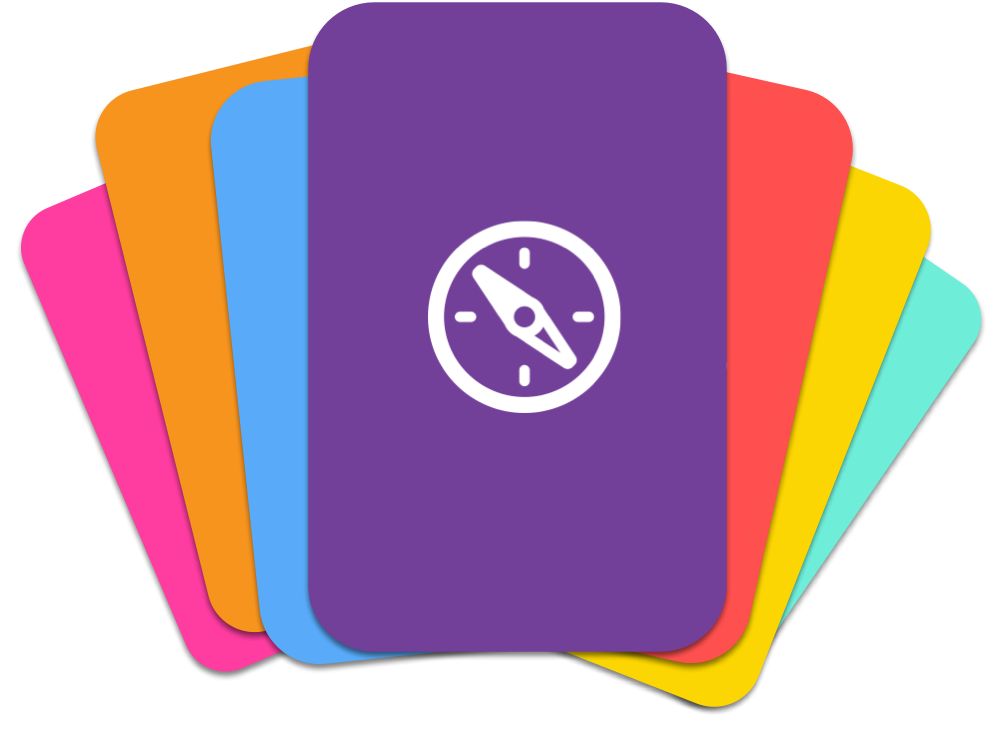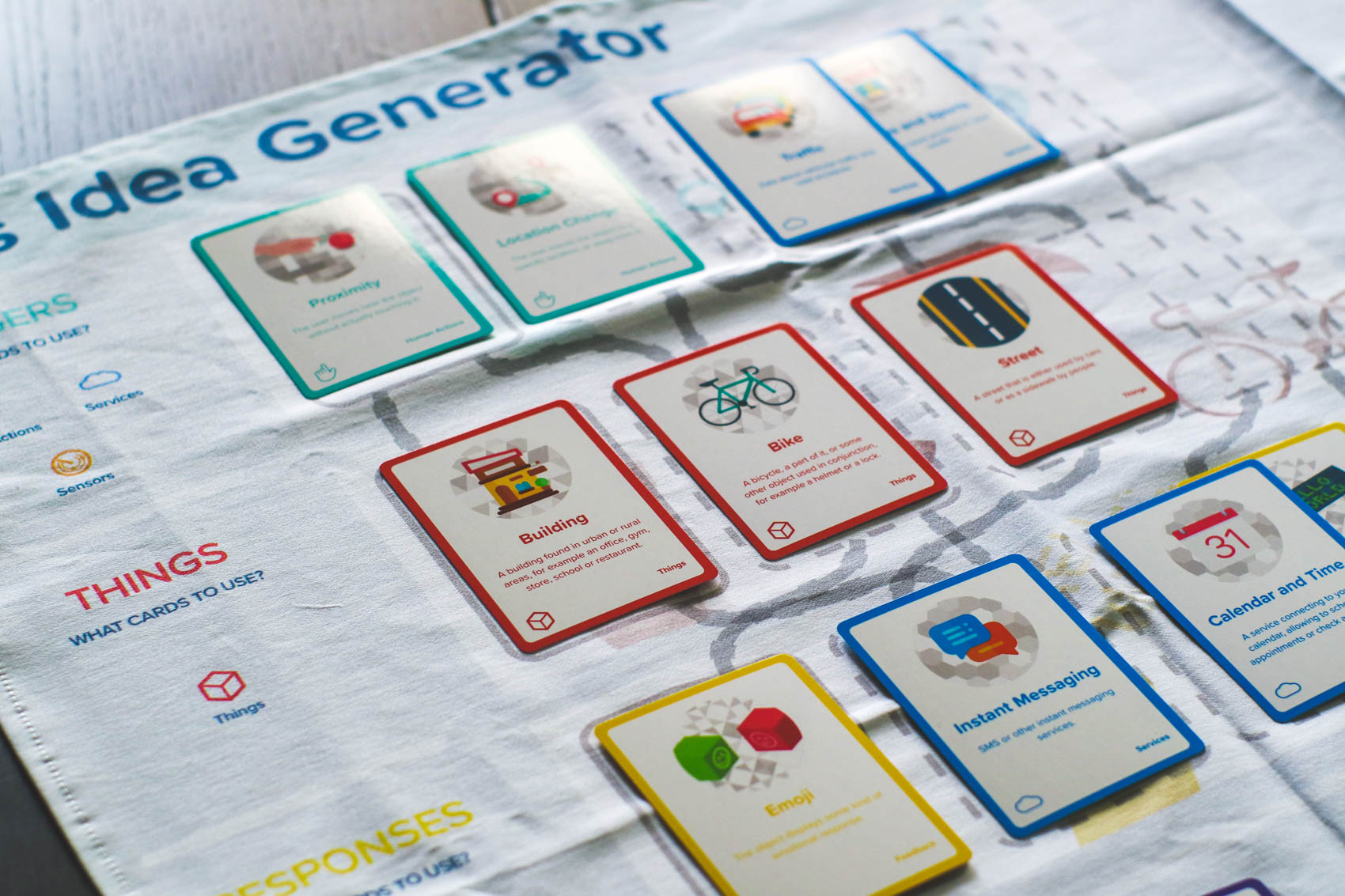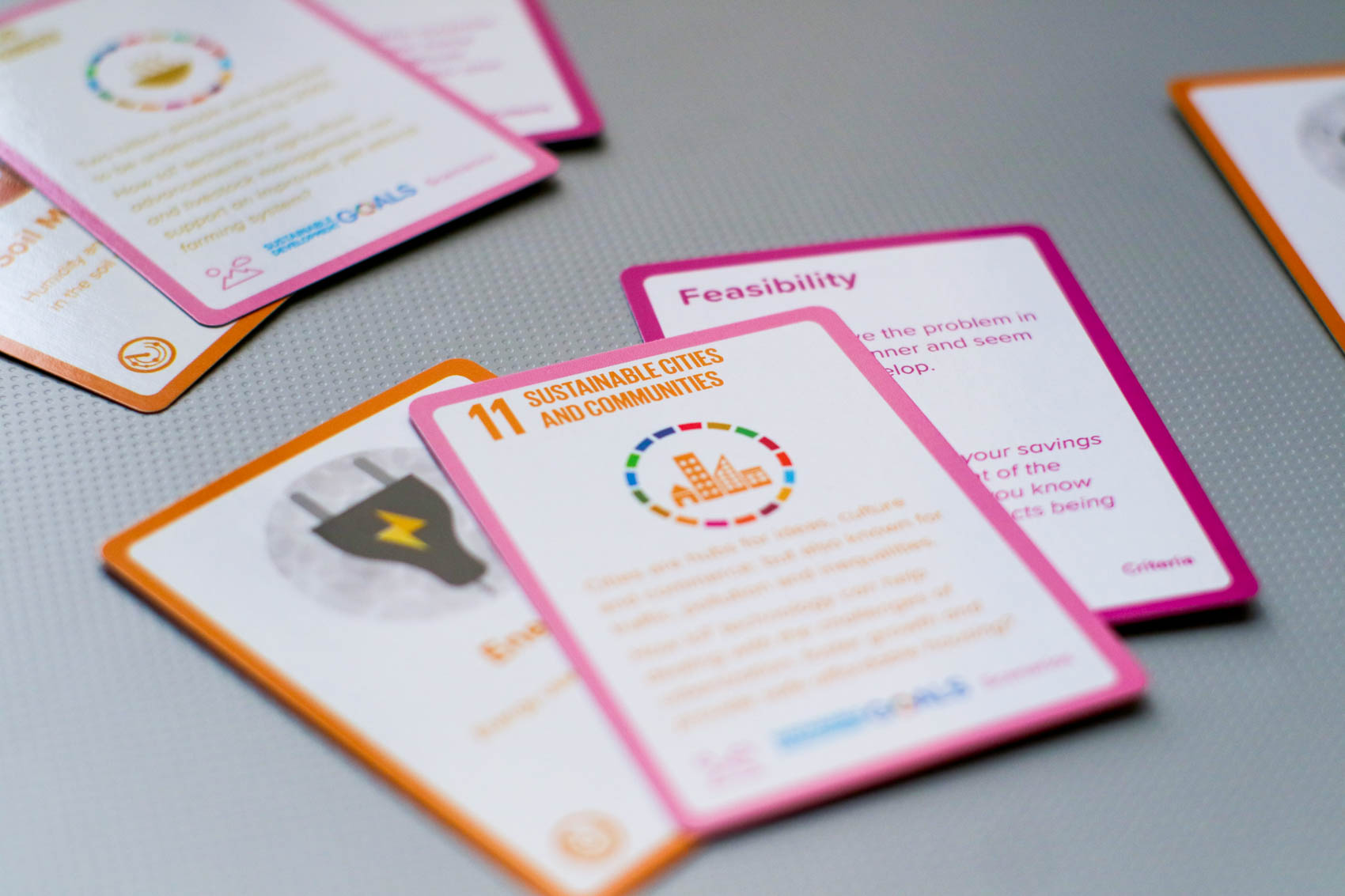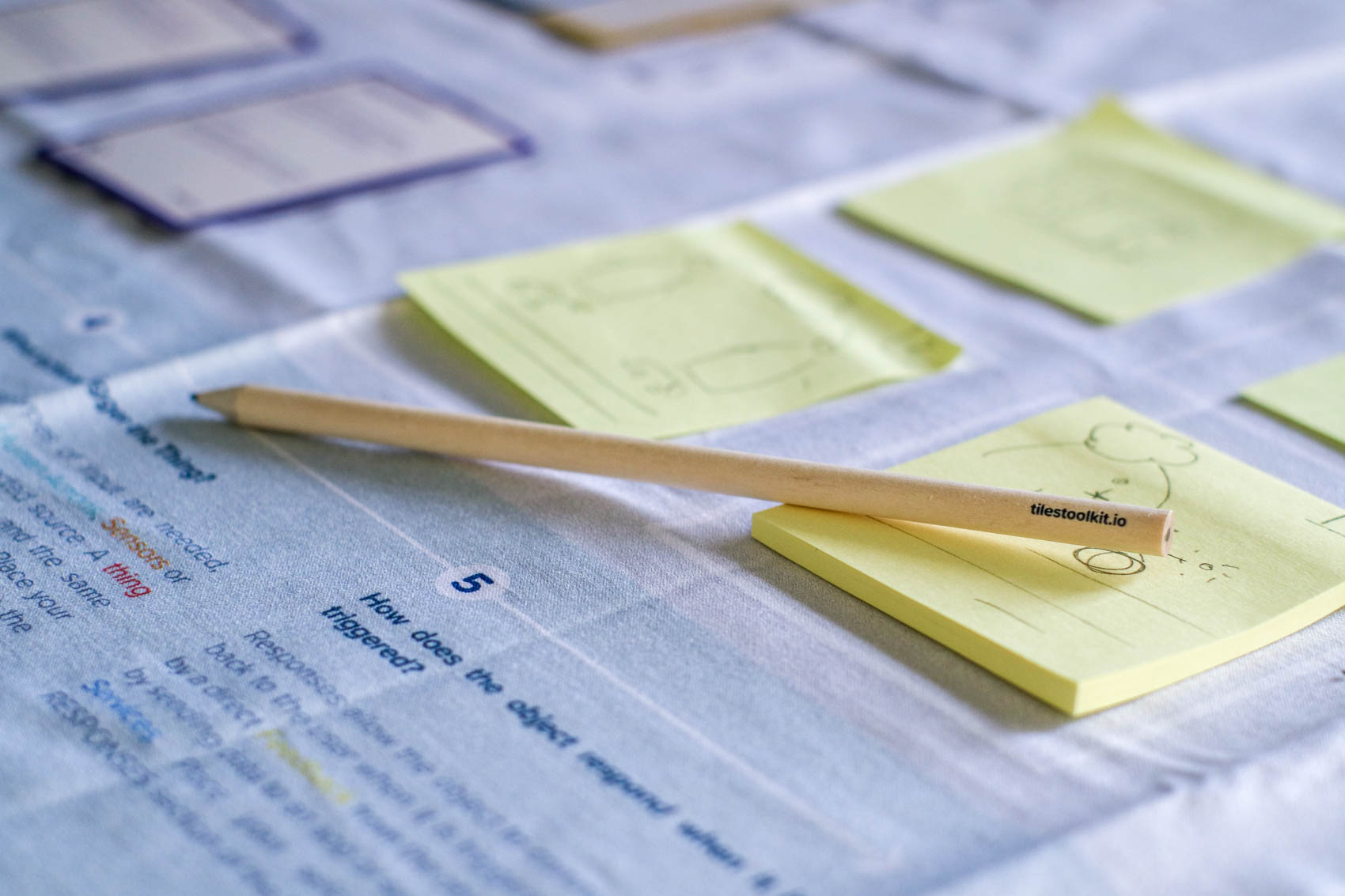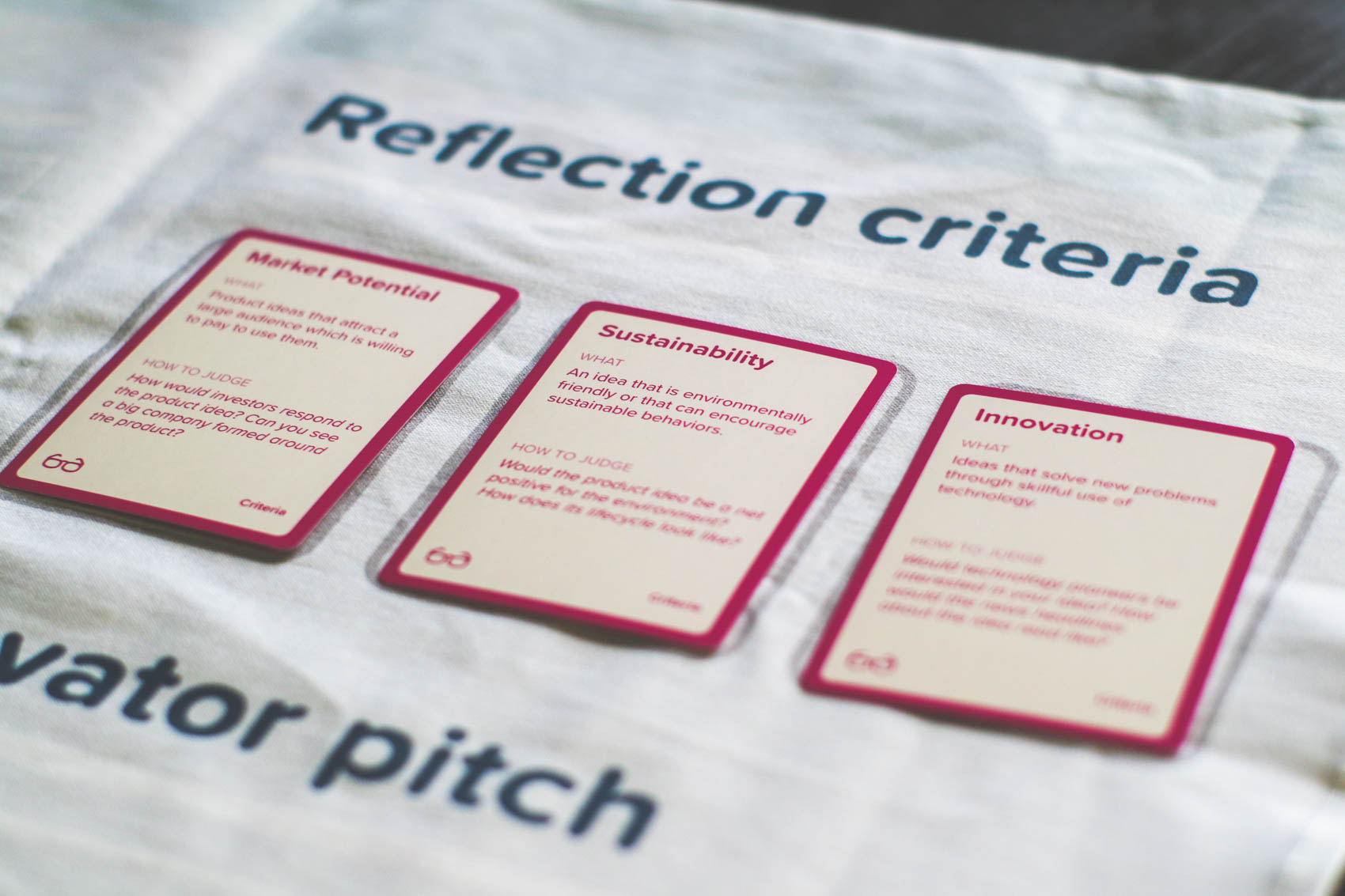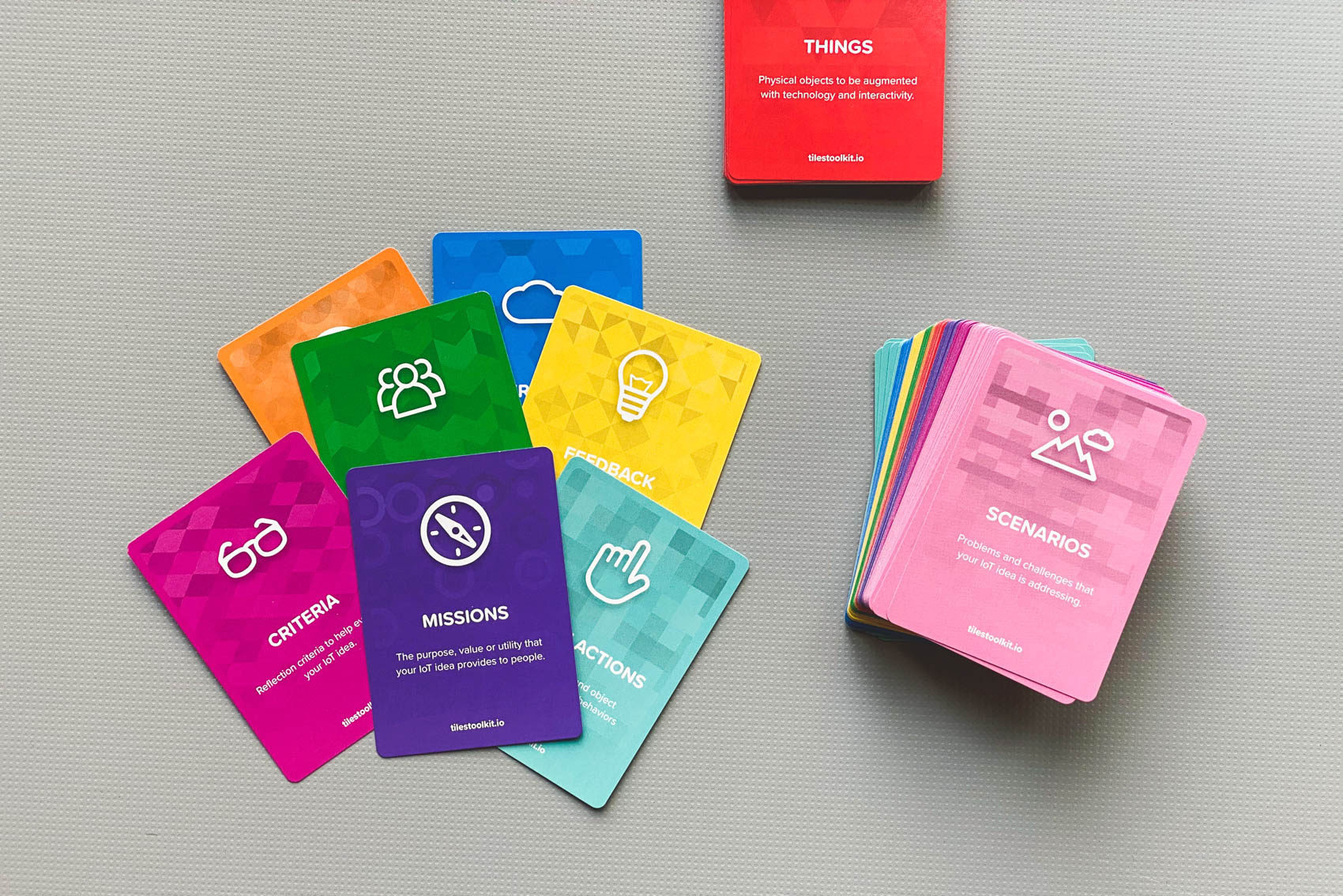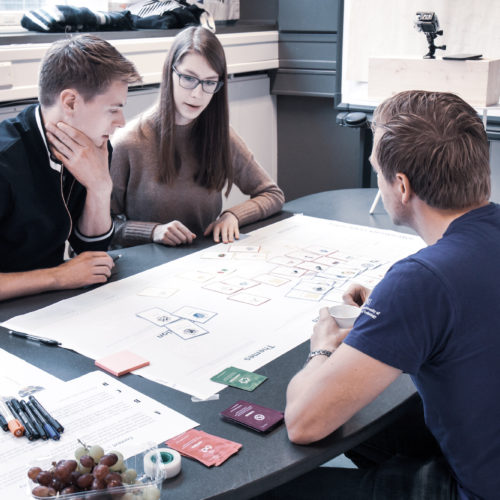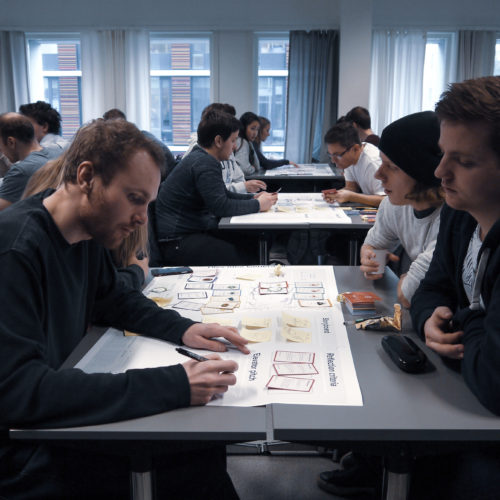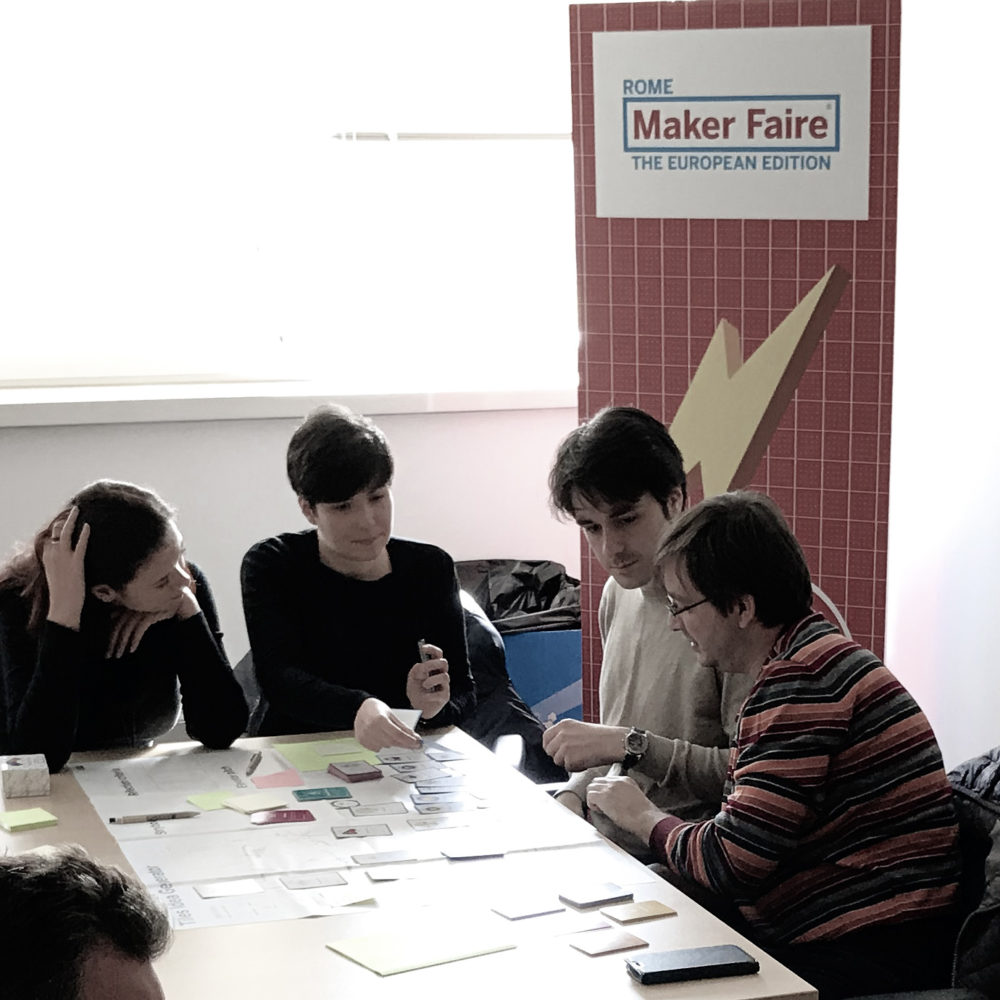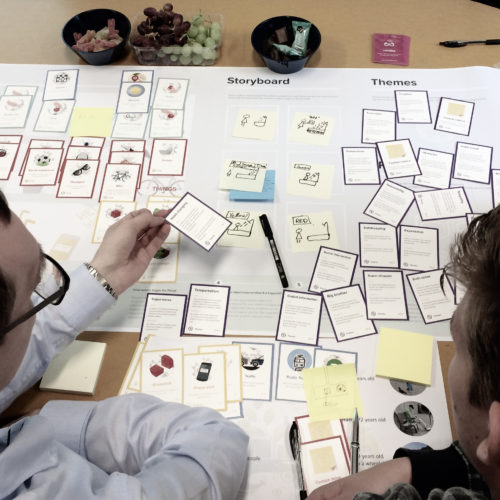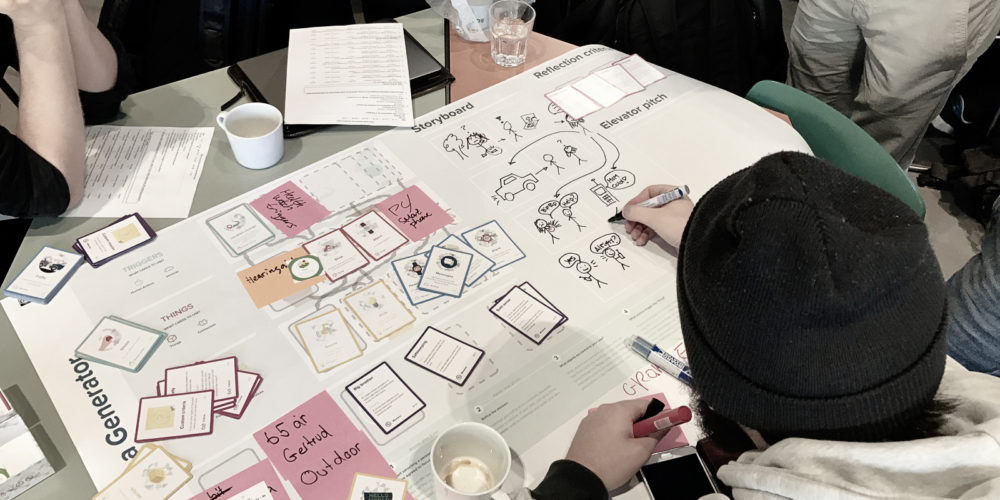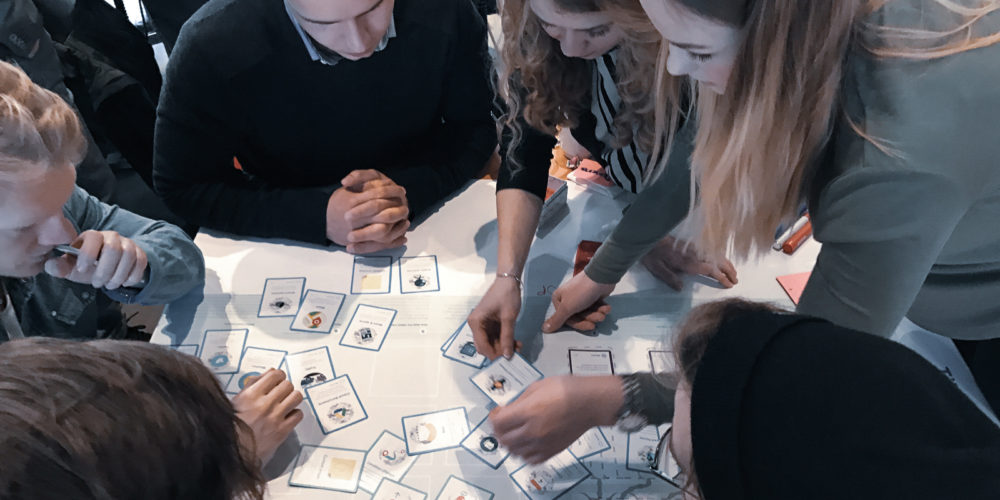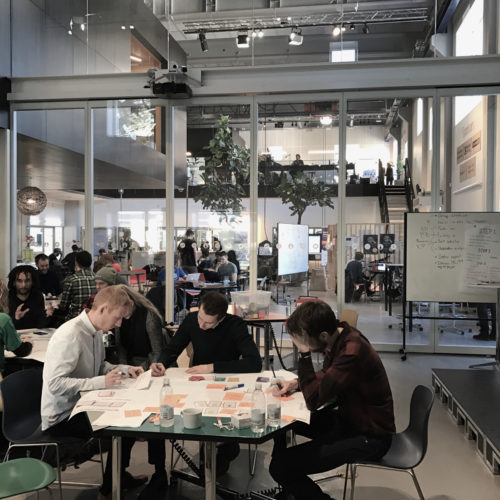
Play with Tiles IoT Inventor Toolkit
Change the World
Tiles is an educational activity for humans aged 10 to ∞ to learn about design and IoT technology by ideating solutions for the UN’s Sustainable Development Goals

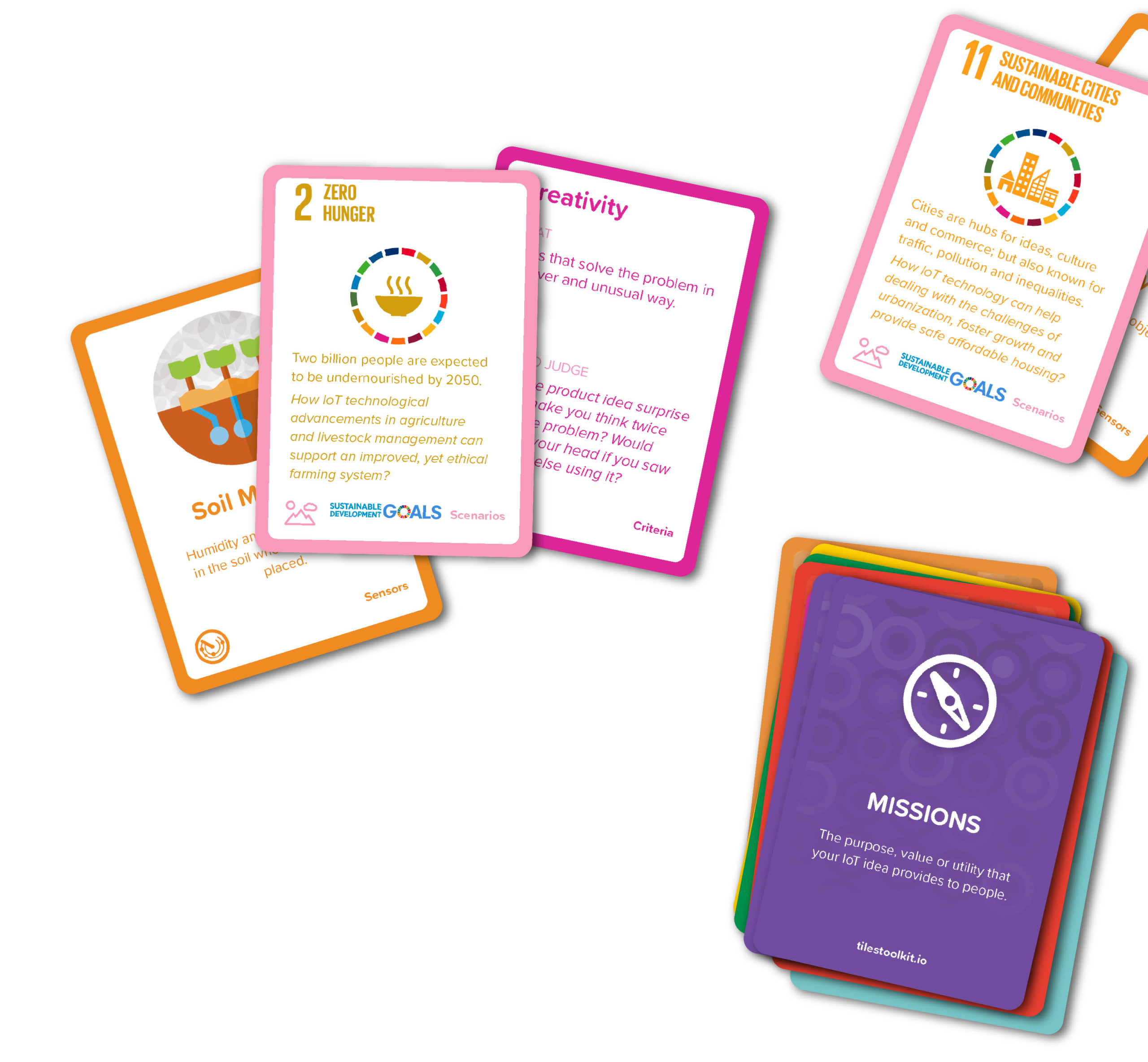
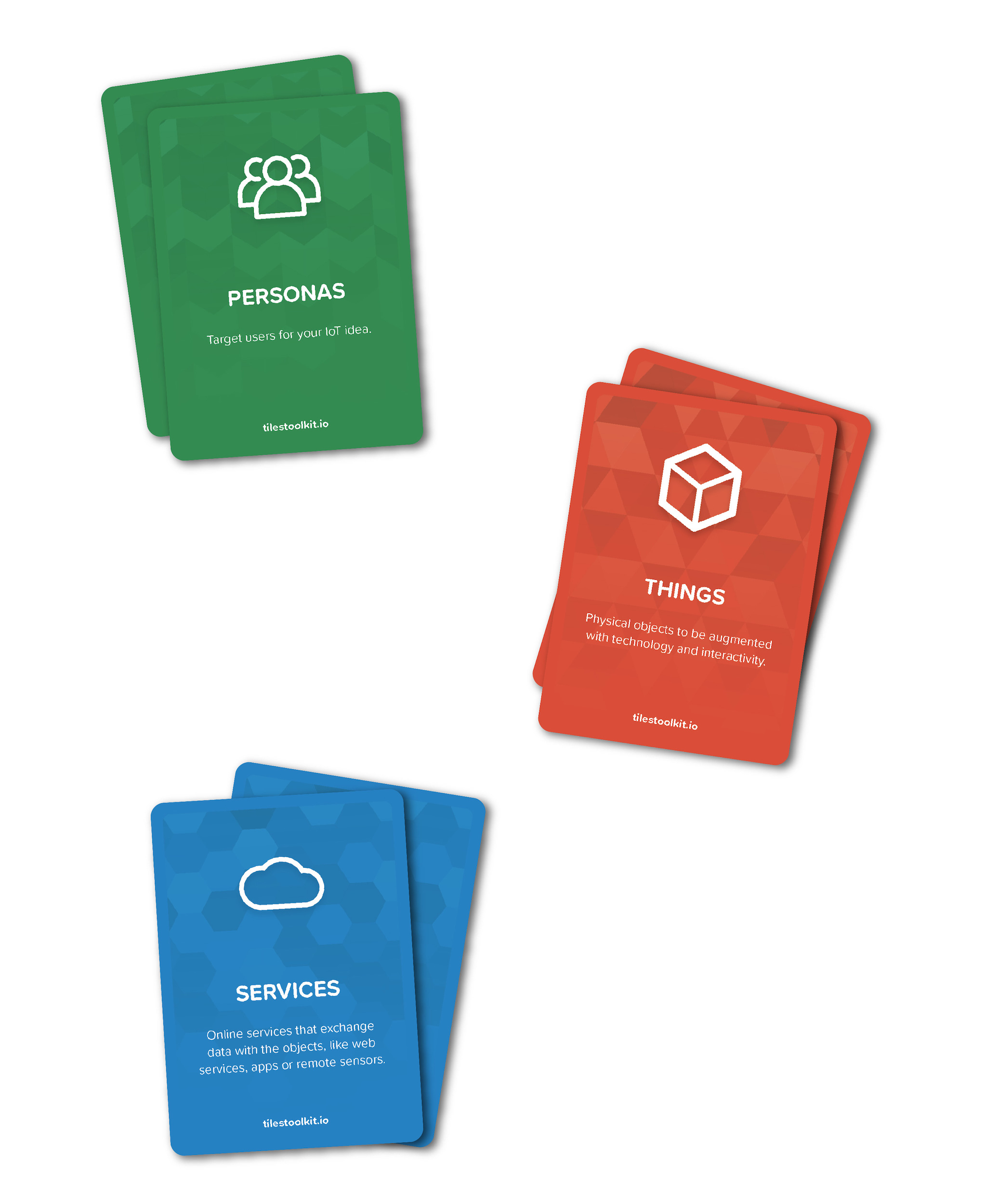
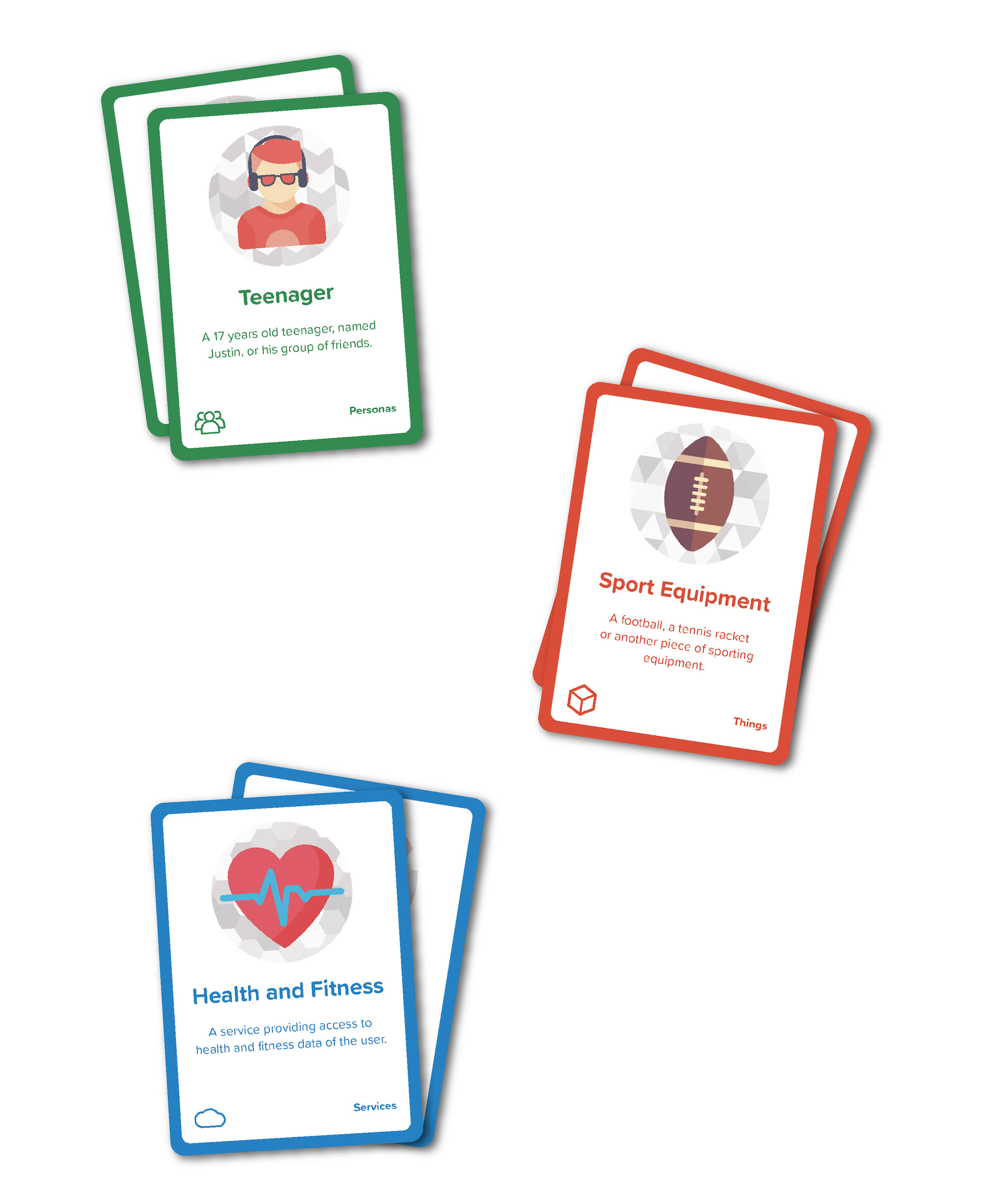
A card-based brainstorming game
Tiles provides 100+ brainstorming cards that can be combined as cooking ingredients to invent solutions for the UN’s SDGs.

Domain cards summarize the goals and the people who will be impacted by your invention.

Technology cards provide simple descriptions of technology like: things, sensors, data and user interfaces.

Mission cards spice up your mix by providing provocative design goals.

Criteria cards help to reflect and converge towards meaningful ideas.
Research-backed ideation process
Cards play is guided by an ideation process refined over years of academic research. The process, described in the Tiles Playbook, consists in seven design thinking activities which include combining cards, sketching a storyboard and preparing an elevator pitch. The Tiles Idea Generator Pad further help scaffolding the process providing visual cues and suggesting completion times to guide each step.
The ideation process can be an individual activity or a team-based activity during in-person or virtual workshops and hackathons.
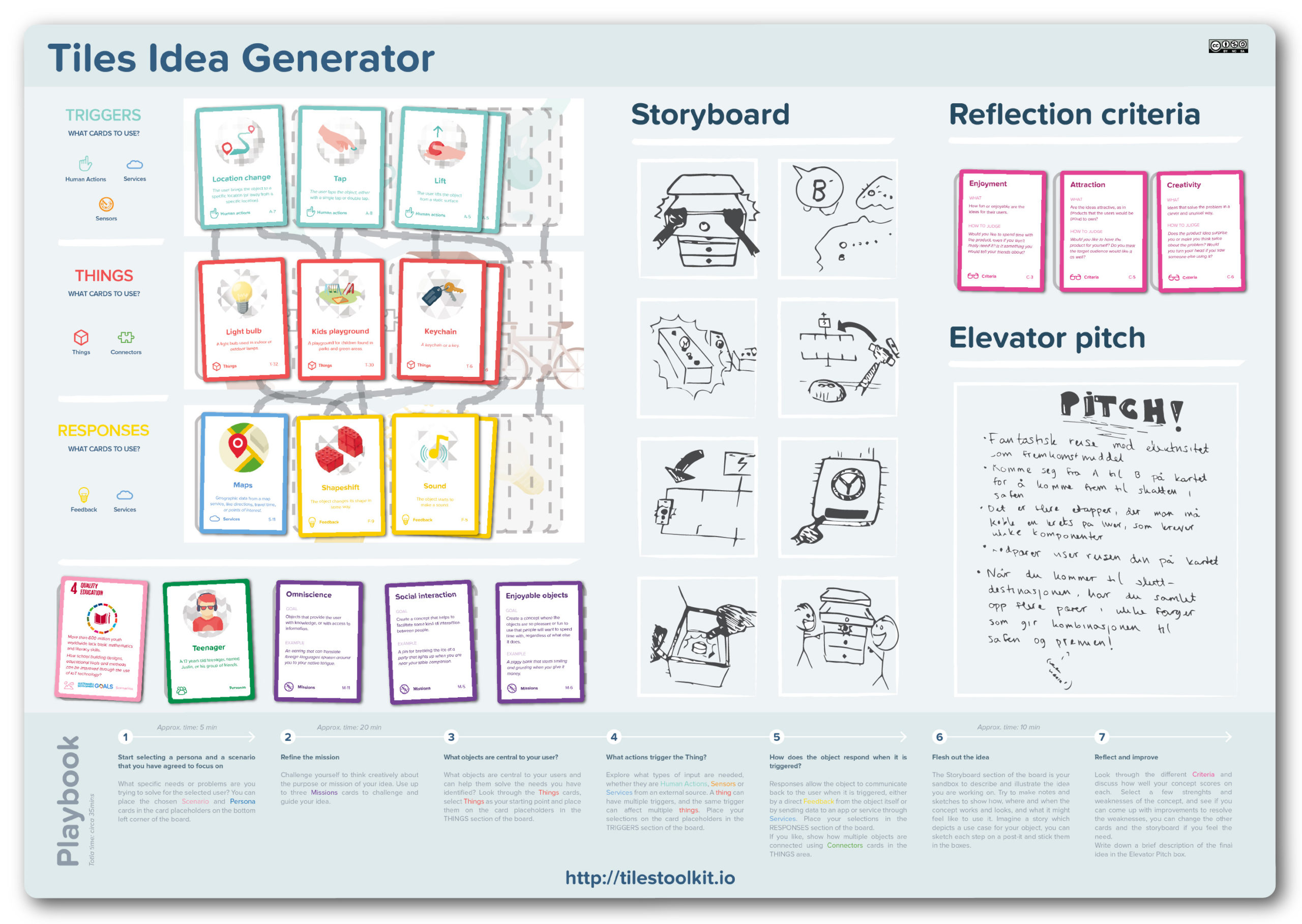
1
Choose a UN SDG Scenario and combine it with a Mersona that will benefit from your idea. Mission cards provide examples of great ideas.
2
Brainstorm how technology can help solving your goal by combining Sensors, Data, Things and Human Actions and Feedbacks cards
3
Flesh out your idea in a storyboard
4
Reflect and improve on your idea using criteria cards
5
Pitch your idea to the world!
6
The playbook guides the process with step-by-step instructions, examples and completion time for each phase
WATCH HOW TO PLAY
Workshop-in-a-bag
Want to play with Tiles? We have produced a limited number of our Workshop-in-a-bag package, which includes the 120+ high-quality brainstorming cards, a re-usable (and washable) Tiles Idea Generator Pad, the Tiles Playbook, pencil and sticky notes.
Want to try out Tiles right now? We provide digital files for printing the toolkit materials at home, free of charge, so you can start creating solutions to UN’s SDGs right away! Tiles is an open-source project.
What can you do with Tiles?
Are you an educator? – Use Tiles in your classroom, fablab or college to teach the foundations of IoT, design and computational thinking; while ideating an invention to solve a UN Sustainability Goal. Group your students in teams and let them invent an IoT application as project assignment.
Are you a creative, maker or doer? – Use Tiles to explore and learn the possibilities provided by the IoT. Generate great ideas for you next DIY project.
Are you a designer or technologist? – Integrate Tiles in your own workflow to engage your clients in ideation workshops.
The Tiles Community
Do you need help to arrange a physical or virtual Tiles Workshop? Contact us for more Information!
Contact us!
Want to get all the updates? Subscribe to our mailing list!
We won’t spam you or give your address to any third-parties. Unsubscribe anytime.
Help achieving the UN’s Sustainable Development Goals, with Tiles IoT Inventor Toolkit!
Tiles IoT Inventor Toolkit is an open-source project maintained by Tiles Technologies and created by Simone Mora, Francesco Gianni and Monica Divitini at the dept of Computer Science, Norwegian University of Science and Technology 🇳🇴.
